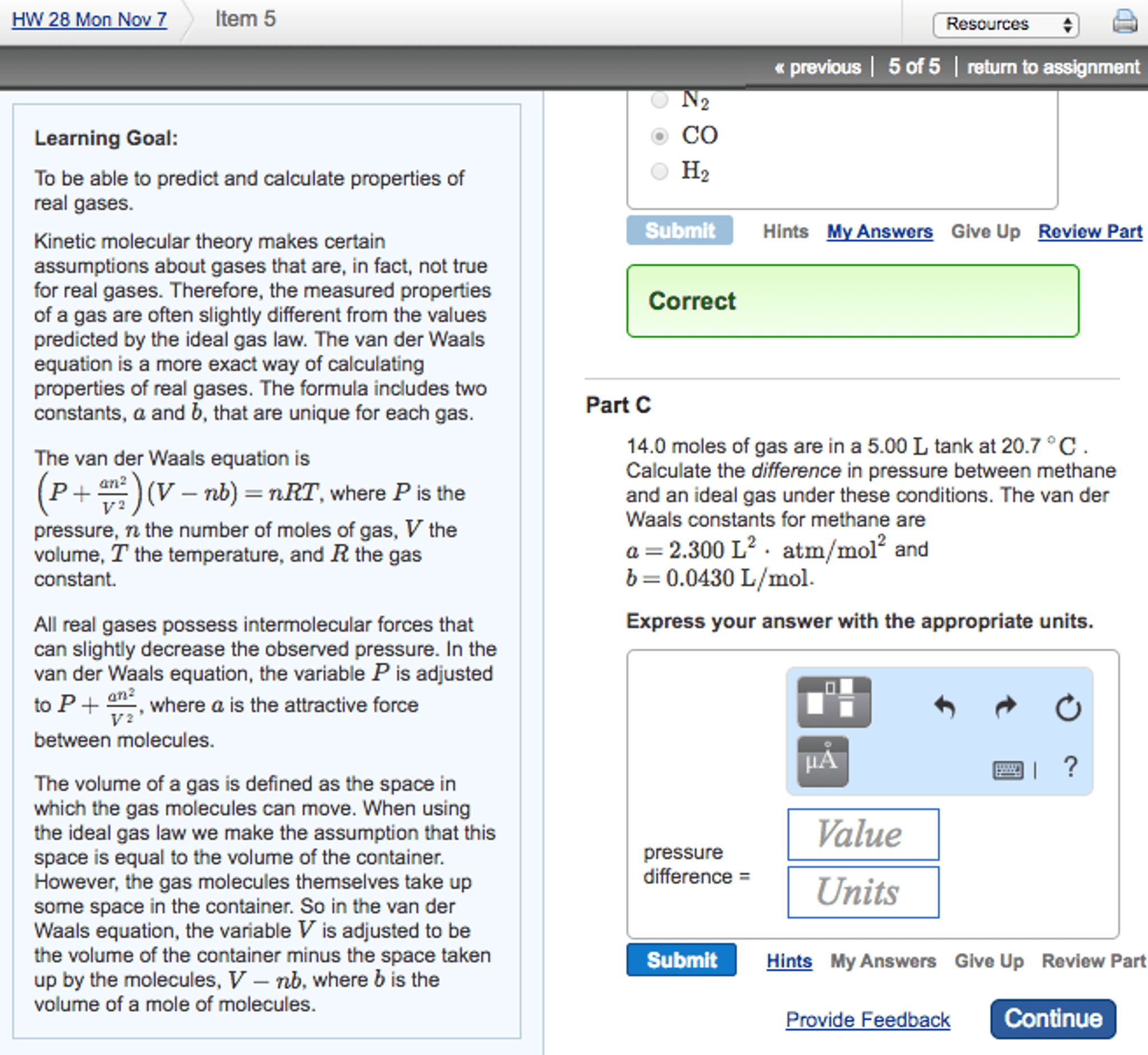CHE 131 Lecture Notes - Lecture 16: Collision Frequency, Ideal Gas, Root Mean Square

55
CHE 131 Full Course Notes
Verified Note
55 documents
Document Summary
Che 131 lecture 16- dalton"s law; kinetic molecular theory. For a mixture of gases in a container with fixed volume, pressure are contributed by individual gas. Ratio of the number of moles of a given component in a mixture to the total number of moles in a mixture. Mole fraction in terms of pressure (n=pv/rt) Particles in a sample containing a mixture of gases at a given temperature. All the particles have the same average kinetic energy. On average, the lighter particles move faster than the heavier particles. If pressure rise as the volume of a cylinder filled with a gas decrease, collisions of gas particles with each other are more frequent. Is a modified version of the ideal gas equation that takes into account intermolecular forces between gas particles and real molecular volume of the gas particles. The more intermolecular forces between its particle, the least ideal it behaves. Have tiny volumes compared with distance between them.



